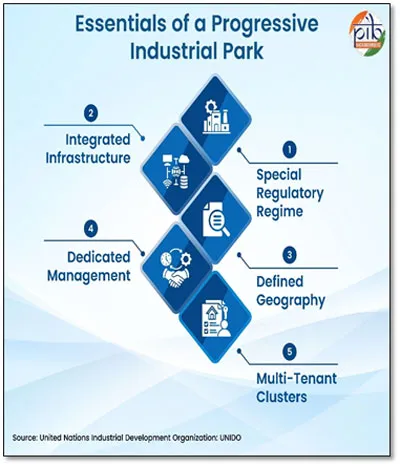US to give consultancy to India under the $3.1 billion drone agreement

Assam Poised as Act East Gateway, Sonowal tells Guwahati Dialogue
Union Minister of Ports, Shipping and Waterways Sarbananda Sonowal on Tuesday said Assam is uniquely positioned to emerge as a regional growth hub under India’s Act East Policy, calling on entrepreneurs to leverage the state’s strategic geography, improving connectivity and governance reforms to drive inclusive development across the Northeast.Delivering the keynote address at the second Guwahati Dialogue, Sonowal said Assam has the potential to cater to a market of nearly 800 million people extending from Nepal to Myanmar, as India strengthens economic and logistical integration with Sout..

Industrial Parks Drive Smarter Infrastructure, Stronger Growth
Industrial parks are increasingly emerging as a key instrument in advancing India’s industrialisation and innovation agenda, playing a vital role in strengthening the country’s manufacturing base and economic competitiveness. Developed through collaboration between the government, state authorities and the private sector, these parks are designed to attract investment, enable efficient industrial operations and promote balanced regional development.An industrial park typically comprises a planned and developed tract of land designated for industrial use, often supported by shared infrastru..

CCI Approves Asia II Topco’s Warrant Acquisition in Federal Bank
The Competition Commission of India (CCI) has approved the acquisition of certain warrants of Federal Bank by Asia II Topco XIII, paving the way for a minority investment in the private sector lender.The proposed combination involves Asia II Topco XIII acquiring warrants issued by Federal Bank, with each warrant carrying the right to subscribe to one fully paid-up equity share of the bank. Upon full exercise of these warrants, the acquirer is expected to hold 9.99 per cent of Federal Bank’s paid-up share capital on a fully diluted basis.As part of the transaction, the acquirer will also have..
















